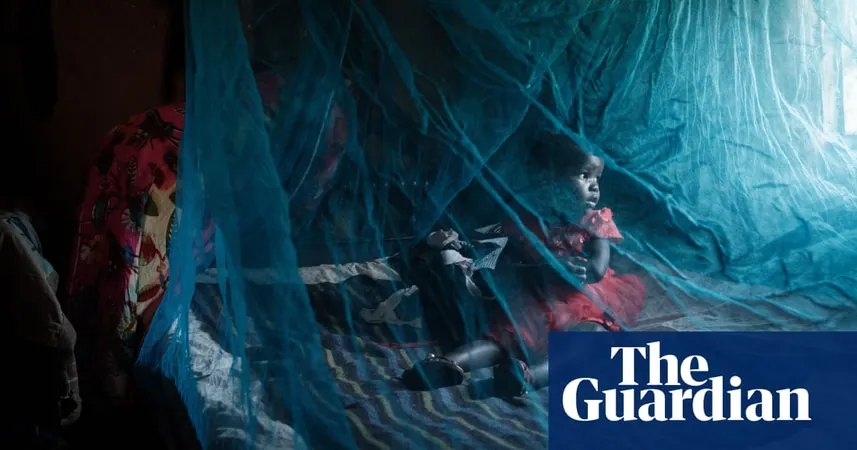
Alarm Bells Ring as Malaria Drug Resistance Emerges in African Children!
2024-11-14
Author: Arjun
Researchers are sounding the alarm over a disturbing trend in the fight against malaria, as a recent study reveals that the much-lauded artemisinin-based therapies are becoming less effective in young patients across Africa. This meticulous investigation, conducted in Ugandan hospitals, highlights that one in ten children battling severe malaria is showing signs of resistance to this lifesaving drug.
With malaria claiming the lives of approximately 450,000 children under the age of five each year in sub-Saharan Africa, the findings of this study become all the more critical. Out of the 100 children examined, 11 exhibited partial resistance to treatment, and genetic tests confirmed these cases were linked to mutations typically associated with artemisinin resistance.
Dr. Chandy John of Indiana University, a key author of the study presented at the prestigious American Society of Tropical Medicine & Hygiene conference in New Orleans, stated, “This is the first evidence from Africa indicating that severely ill children with malaria are encountering at least partial resistance to artemisinin.” Furthermore, the research unveiled that 10 other children, believed to have been cured, experienced a relapse due to the same malaria strain within just a month of treatment.
The implications of these revelations are severe. The combination therapy of artemisinin and lumefantrine, which was once the gold standard in malaria treatment, is now under scrutiny. “The emergence of resistance, especially prior to our research focus, serves as a warning sign,” Dr. John added.
The concern extends beyond Uganda. Although it’s too early to assess the widespread nature of artemisinin resistance in Africa, troubling evidence from nations like Rwanda echoes similar patterns observed in Southeast Asia years ago. Just as resistance began creeping into that region, the consequences were dire—leading to higher treatment failure rates and making previously manageable infections far deadlier.
Dr. Richard Pearson from the Wellcome Sanger Institute noted that this scenario in East Africa feels alarmingly similar to the challenges faced in Southeast Asia a decade and a half ago. The urgency of developing strategies to counteract this resistance cannot be overstated.
Artemisinin, derived from sweet wormwood, has revolutionized malaria treatment, particularly for severe cases. It has largely supplanted quinine, which was once the standard but came with significant side effects and lower efficacy in severe cases. “If we revert to quinine, it would represent a major setback in our progress against malaria,” cautioned Dr. John, emphasizing the need for innovative solutions.
Dr. Alena Pance, a senior lecturer in genetics at the University of Hertfordshire, echoed the sentiment of urgency. She described the resistance to this critical drug as “extremely worrying,” especially given Africa’s high transmission rates, which pose a substantial risk of rapid resistance spread throughout the continent.
As the fight against malaria faces this new and daunting challenge, researchers and health authorities must come together to devise strategies to combat this alarming development. The health of millions is at stake—what actions will be taken to avert a crisis?



 Brasil (PT)
Brasil (PT)
 Canada (EN)
Canada (EN)
 Chile (ES)
Chile (ES)
 España (ES)
España (ES)
 France (FR)
France (FR)
 Hong Kong (EN)
Hong Kong (EN)
 Italia (IT)
Italia (IT)
 日本 (JA)
日本 (JA)
 Magyarország (HU)
Magyarország (HU)
 Norge (NO)
Norge (NO)
 Polska (PL)
Polska (PL)
 Schweiz (DE)
Schweiz (DE)
 Singapore (EN)
Singapore (EN)
 Sverige (SV)
Sverige (SV)
 Suomi (FI)
Suomi (FI)
 Türkiye (TR)
Türkiye (TR)